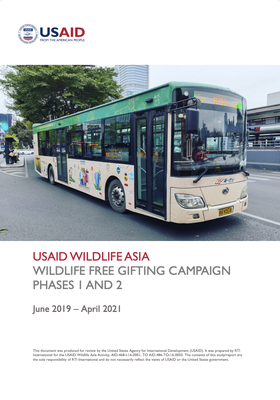Wildlife Free Gifting Phases 1 and 2 Campaign Report
Gifting with wildlife products shows the status and wealth of the “giver”, and particularly their caring and respect to the recipient. Based on this finding, the Wildlife Free Gifting (WFG) campaign in China was developed to motivate the target audience to stop buying or accepting gifts derived from wildlife and change the social norm of gifting with endangered wildlife species. Phase I focused on pangolins and the key message was “Do not consume wildlife as food, which is not only to obey the law but also to safeguard your own health and that of the public’s.” Phase II expanded the focus to tiger bone, rhino horn, and elephant ivory in daily gifting scenarios while continuing with the pangolin component. The key messages were: “Presenting the most appropriate gift is the best way to show your love and care to families and friends", "Giving tiger bone/rhino horn/elephant ivory products as gifts does not express love and will also likely bring legal sanctions", and "Ivory products are not suitable souvenirs. Do not let a wonderful journey end in jail.”
 UWA_WFG Phases 1 and 2_Campaign Report.pdf
— 10303 KB
UWA_WFG Phases 1 and 2_Campaign Report.pdf
— 10303 KB


